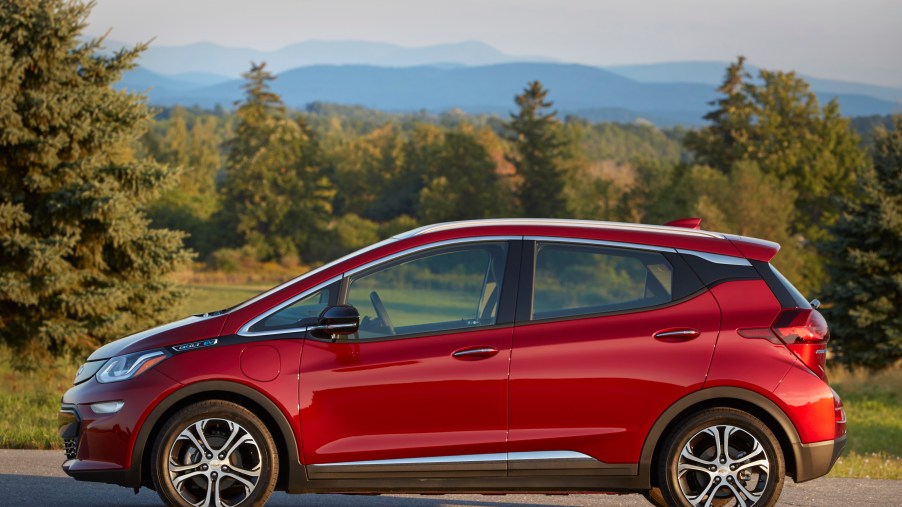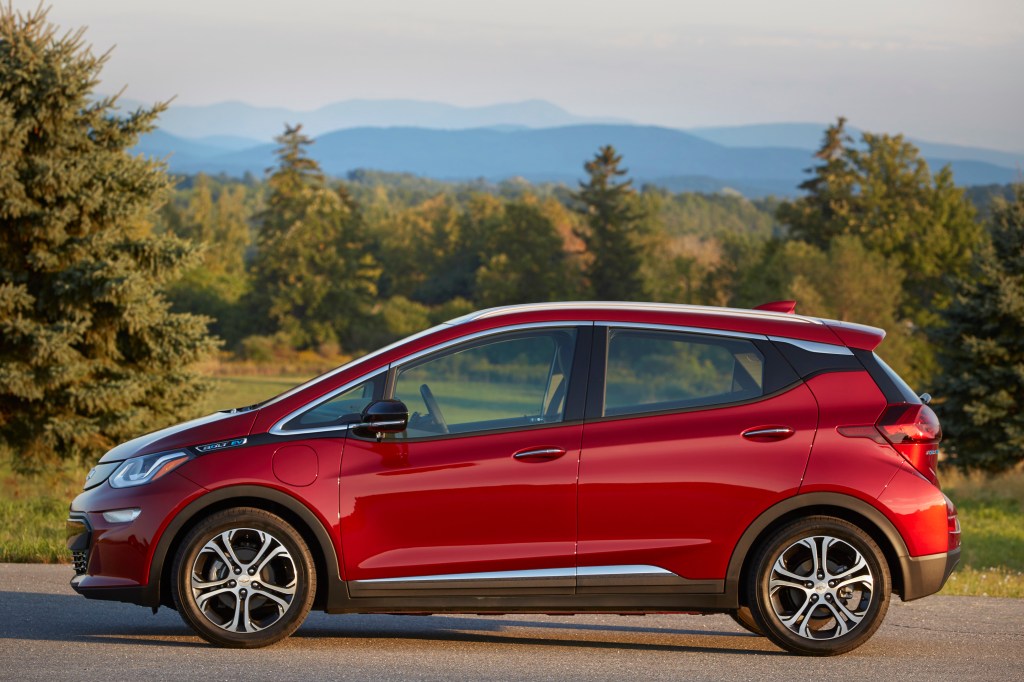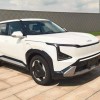
Is Your Chevy Bolt In Danger Of Spontaneously Combusting?
When pondering all the ways a car could catch fire, most people probably think of a high-speed crash. Unless you’re watching a British spy movie, it’s rare for a parked car to just spontaneously combust. But that’s apparently what happened earlier this year to a Chevy Bolt owned by Hajime Rojas of Fairfax, Virginia.
This isn’t the first safety concern that has come up for the Bolt. In early 2020, there was a recall on the electric vehicle because the rear doors could fly open while driving, a terrifying situation for anyone with young kids sitting in the back. That defect was traced back to door handle cables that were too long and prone to breaking.
The Chevy Bolt is popular in the EV market
The first Chevy Bolt hit the assembly line in 2016. The electric vehicle is a partnership between General Motors and Korea-based LG Electronics. While being made in America is important to some Chevy buyers, the partnership with LG was necessary, as GM lacked the electrical know-how to produce an EV car.
Despite its issues, Bolt drivers shouldn’t jump to the conclusion that they’ve purchased a lemon. The Bolt has proven it’s a strong contender in the electric vehicle market. In fact, GM Authority reported that in the middle of 2020, the Bolt was the second most popular electric vehicle in the U.S., after the Toyota Prius.
The Chevy Bolt also has several advantages over another electric vehicle, the Tesla Model 3. Unlike the Model 3, the Bolt is readily available and doesn’t have to be special ordered. The Bolt is also relatively affordable while still offering 56 cubic feet of cargo room.
Not the Fourth of July ‘fireworks’ that anyone was expecting
Washington D.C.’s WJLA reported that during a Fourth of July family get together, Rojas’ Chevy Bolt started on fire. The car was parked at a lot at her parent’s house, and started on fire without any warning. “I was seeing smoke just growing and growing and getting bigger and bigger behind the car,” Rojas says. “When you see that, I mean you don’t know what’s going to happen.”
While there were no visible flames, the combustion caused considerable damage. It was hot enough to melt the backseat, as well as some plastic electrical parts. Unfortunately for Rojas, her car was declared a total loss by her insurance company.
Fearing for the safety of other Bolt owners, Rojas asked GM to look into what may have caused the fire. At first, the automaker refused, telling Rojas the matter was in the hands of her insurance company. That didn’t sit right with Rojas, who demanded answers.
General Motors is now investigating the fire

It was after Rojas reached out to the TV station that GM decided to look into the matter. While GM has yet to release their findings, it’s possible that a defective battery was the cause.
WJLA also spoke with Dr. Eric Wachsman, who is an engineering professor, Director of the Maryland Energy Innovation Institute, and also an electric vehicle owner. Dr. Wachsman says lithium batteries are safe, “as long as the battery is not pushed passed its limit or has a defect.”
The National Highway Transportation and Safety Administration is also investigating the incident, much to Rojas’ relief. “If I don’t say anything and I hear later on that this happened to someone else, I’m going to feel like I had a chance to say something and I didn’t,” Rojas told WJLA. GM Authority is following the case and promises to keep readers updated on any findings.


